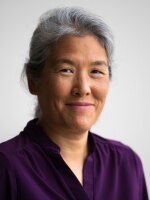The August primary election is only about two months away, but you might not even know it. The Seattle mayor’s race, which involves nine candidates, has yet to hit the front pages. Ask any random people on the street, and chances are they aren't even aware that a race is underway.
The candidates have been hard at work on the campaign trail, but much of what they have been doing is not immediately obvious.
“There is this term in politics called the ‘invisible primary,’ which is things that are behind the scenes,” said David Domke, professor of communications at the University of Washington. “Raising money, building a volunteer base, and seeking endorsements; this is that phase right now for candidates.”
In the past months, candidates have been focusing much of their time on the movers and shakers of electoral politics: people who donate money, people who volunteer for campaigns, and people and organizations that give endorsements.
Endorsements are key, according to Domke. They come from a variety of places: labor unions, businesses, environmental groups, prominent citizens, and elected officials; among others. Early endorsements are the most coveted. They bring credibility, cash, and often committed volunteers to a campaign.
“If you get an endorsement of a Sierra Club, a bicycle club, any key organization in Seattle, it’s likely they have an email listserv that they will endorse you on, and allow you to make an ask for a donation, or for volunteers," said Domke.
Seattle is a heavily Democratic city, so endorsements from Democratic Party organizations matter as well. Democratic Party activists are organized by precinct in each of the state's legislative districts. The party just completed its first round of district endorsements.
State Senator Ed Murray, architect Peter Steinbrueck, and City Councilmember Bruce Harrell each received two endorsements. Mayor Mike McGinn received one.
Democratic Party activists will now fan out into their neighborhoods armed with printed literature about their endorsed candidates and causes.
"According to the data we have, that really makes a difference, both for turnout and who people vote for," said David Miller, elections director for the 46th District Democrats.
The organization studied results from the 2012 general election. In precincts they targeted with both volunteers and literature, endorsed candidates received six percent more votes than in precincts that were left alone. Turnout in those targeted precincts was also three percent higher.
Candidates themselves are split as to whether these endorsements make a difference. "I don't think anybody really knows," said Steinbrueck. But, he added, early endorsements "help to build momentum."
"How important are endorsements? I had almost none last time, and I won," said Mayor McGinn.
McGinn received early endorsements from two of the groups that were instrumental in his surprise 2009 win: the Sierra Club and the Cascade Bicycle Club.
He also leads in the fundraising race, with $223,119 raised. Harrell is second with $169,069, and businessman Charlie Staadecker is third with $161,880.
Labor unions have so far split their endorsements among McGinn, Harrell, Steinbrueck, and Murray. Elected officials have favored Murray. The city's business groups have yet to weigh in.
But the invisible primary is not all about endorsements and money, it’s also about messaging, and refining the two minute stump speech.
Incumbent McGinn is positioning himself as the "progressive" candidate and is touting his accomplishments in office. Murray talks about his fight for gay civil rights and the need for better leadership in the city. Steinbrueck wants to be the champion of neighborhoods and rational growth. Staadecker is the candidate who understands business. Harrell is focusing on social justice. Kate Martin talks about investing in youth. Joey Gray is about the environment. Mary Martin is about workers taking over power from the capitalist class.
Domke says a crowded race is like a reality TV show, with each candidate playing a specific type. And it’s something the public will get to watch soon as the invisible primary comes out of the shadows.


